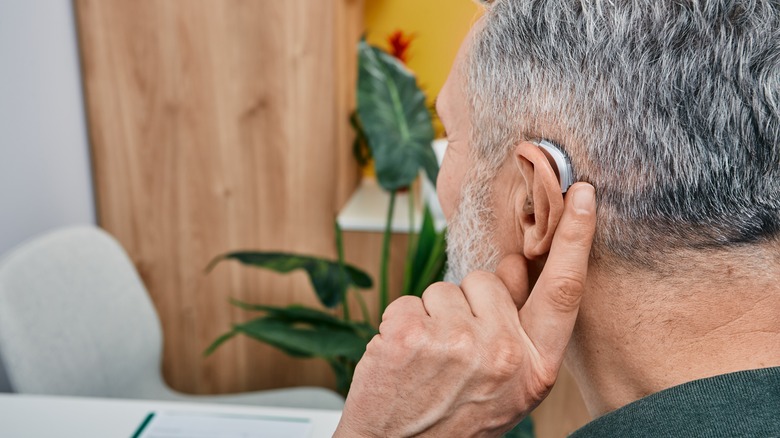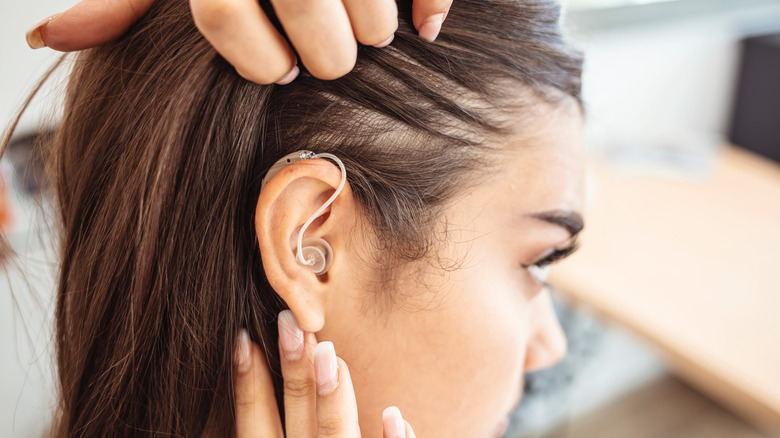A New Process For Acquiring A Hearing Aid Could Help Millions Of People Worldwide
While an enormous 28.8 million American adults can benefit from using hearing aids, not all do, according to the National Institute on Deafness and Other Communication Disorders. Only 30% of those adults over the age of 70 who could use them actually do, while just 16% of those 69 or younger who could use them ever have. And affordability may have a lot to do with that.
Before now, hearing aids have only been accessible with a prescription and a custom fitting at the doctor's office (via CNN). Some devices can cost a whopping $6,000 per ear, but you can get them at larger retailers for approximately $1,400 per pair. Keep in mind, insurance companies won't always pay. In fact, only about 50% of state Medicaid programs cover hearing aids. Unfortunately, the majority of Medicare plans and private insurance won't cover them. According to a 2020 study published in JAMA Internal Medicine, Americans pay an average of $4,000 out of pocket for a pair of hearing aids.
Up until recently, a couple of companies lead 90% of the worldwide hearing aid market, so there hasn't been much competition to make them affordable (via Grand View Research). But all that is changing now.
Making hearing aids more accessible
As of Monday, hearing aids have become available over the counter after President Joe Biden signed an executive order directing the Food and Drug Administration (FDA) to make the change (via The White House). Without a prescription or exam, adults who experience mild to moderate hearing loss can now buy devices online or at local stores, like CVS, Walgreens, Best Buy, Walmart, and Hy-Vee. The FDA predicts this could save Americans an average of $3,000 per pair.
In fact, making hearing aids more accessible to more Americans could have positive health implications beyond helping with hearing. Those who experience hearing loss but don't have hearing aids are less likely to get out of the house and exercise, and more likely to report poorer overall health, according to a 2020 study. There's also a connection between hearing loss and mental health concerns, like depression, isolation, and loneliness.
With so many new options coming to the market, experts recommend doing your research before making a purchase (via National Public Radio). Make sure you check a product's return policy since it can take up to four weeks to adjust to new hearing aids. You'll also want to look into whether the battery is long-lasting or rechargeable, and decide if you want devices that pair with a smartphone or not.


